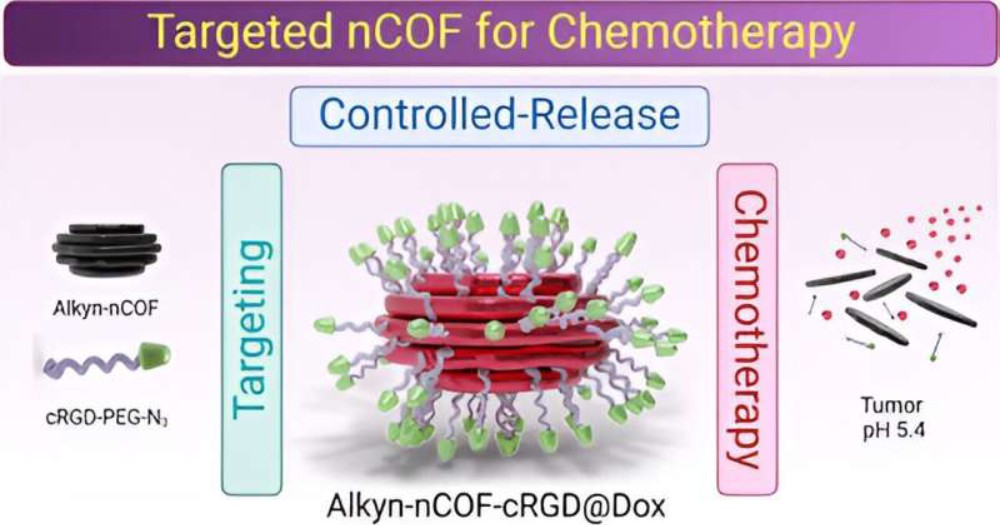NYU Abu Dhabi researchers develop novel covalent organic frameworks for precise cancer treatment

A groundbreaking study by researchers at NYU Abu Dhabi, led by Ali Trabolsi, has introduced a new way to treat one of the most challenging forms of cancer - triple-negative breast cancer (TNBC). By developing nanoscale covalent organic frameworks (nCOFs) modified with peptides, the team has paved the way for a more targeted and effective cancer treatment approach.
This innovative method leverages the unique properties of these peptides to deliver chemotherapy drugs directly to the tumor site, potentially reducing side effects and improving patient outcomes.
How does it work?
The research centers on the development of nanoscale covalent organic frameworks (nCOFs), which are crystalline organic polymers. These nCOFs have been chemically modified with cyclic RGD peptides to specifically target αvβ3 integrins, proteins that are overexpressed in TNBC cells. As described in their study published in "ACS Applied Materials & Interfaces," these peptide-modified nCOFs are designed to release their drug cargo selectively in the acidic environment of a tumor.
The mechanism is akin to a targeted delivery system: the peptides serve as a "key" that enables the chemotherapy drug, Doxorubicin, encapsulated within the nCOFs, to penetrate and disintegrate specifically in the acidic conditions present in cancerous tissues.
As Farah Benyettou, a key researcher, explains, "The peptides act like a key to open the door of cancer cells, allowing the drug to enter and exert its effects exactly where it is needed." This targeted approach not only enhances the effectiveness of the treatment but also minimizes damage to healthy tissues.
Why does it matter?
Triple-negative breast cancer (TNBC) is known for its aggressive growth, rapid spread, and limited treatment options, which often result in poorer prognoses compared to other breast cancer types. Existing drug delivery systems struggle with issues like non-specific distribution and harmful side effects on healthy tissues. The innovative use of peptide-conjugated nCOFs by the NYUAD research team addresses these challenges by providing a precise and localized drug delivery mechanism.
As Trabolsi emphasizes, "Our research has created a smarter way to fight the most aggressive and invasive form of breast cancer."
By delivering chemotherapy directly to the tumor site, this new method not only enhances treatment effectiveness but also minimizes side effects, setting new standards for personalized cancer therapy.
"This technology not only fills existing gaps in drug delivery research but also represents a crucial step towards personalized medicine in cancer treatment," Benyettou adds.
The context
This research is particularly crucial in regions like the UAE, where breast cancer rates remain notably high. Conventional treatments often face significant drawbacks, such as rapid drug clearance and unintended side effects on healthy tissues. This study's successful in vitro and in vivo results demonstrate the advanced targeting capabilities of nCOFs, offering hope for a new, more effective approach to cancer treatment.
Moreover, while peptides have previously been employed in targeted drug delivery, their conjugation with covalent organic frameworks represents a novel approach, combining the strengths of both components. The team's innovative work with peptide-modified nCOFs advances the field of cancer therapy and aligns with global efforts toward more personalized, less invasive cancer treatments.
💡Did you know?
You can take your DHArab experience to the next level with our Premium Membership.👉 Click here to learn more
🛠️Featured tool
 Easy-Peasy
Easy-Peasy
An all-in-one AI tool offering the ability to build no-code AI Bots, create articles & social media posts, convert text into natural speech in 40+ languages, create and edit images, generate videos, and more.
👉 Click here to learn more


